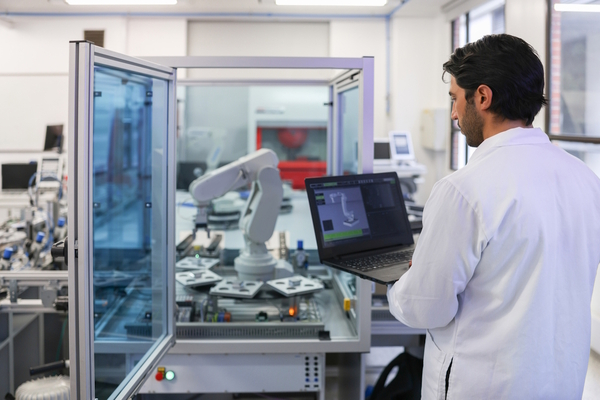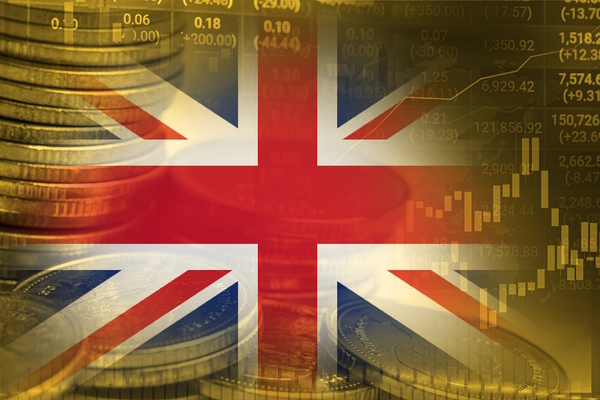The business case for urgent action on climate change
Sponsored by CDP
by Pietro Bertazzi, Global Director of Policy Engagement, CDP
Almost five years ago, governments agreed on the 2030 Agenda and the Paris Agreement – two crucial frameworks for ensuring peace, prosperity and environmental stability. Where the 17 Sustainable Development Goals (SDGs) constitute a completely interconnected agenda, climate change (specifically addressed under SDG 13) is posing an unprecedented risk to all the goals.
Business has been central to the development of the SDGs and has been stepping up efforts on sustainable development as never before. But what role does business have, and which should it play, particularly when it comes to SDG 13 and taking urgent action on climate change?
The recent IPCC report on 1.5°C has delivered the clearest message yet on what we need to do to avoid the catastrophic impacts of runaway global warming and to have a better chance of achieving the SDGs. Put bluntly, to limit warming to only 1.5°C, our global economy needs to completely transform. We need to halve total emissions in the next 10 years and continue onwards to net-zero emissions by 2050 and beyond.
This report, the 2030 Agenda and the Paris Agreement have defined the key goals for sustainable development and tackling climate change. Our Global Climate Analysis report found that companies have reported $2.1 trillion in virtually certain cumulative gains from transitioning into the low-carbon economy. Costs associated with the transition into the low-carbon sector should not be a barrier for companies. We found that the potential value of sustainable businesses opportunities is nearly seven times more than the costs of realising them.
Failure to act will be costly: 215 of the biggest global companies have reported to CDP that almost $1 trillion of assets are at risk from climate-related impacts – many of them expected within the next five years. Companies are at risk of being left behind if they don’t take steps to align themselves to a shifting economy.
Business as usual cannot continue. While the Paris Agreement sets out the mandate to keep the increase in global average temperature to well below two degrees Celsius, we are not on track to meet this goal. At the current rate of warming we will likely reach 1.5°C degrees of warming around 2030, which puts us on track to experience more than 3°C of warming degrees by 2100. This will be dangerous. Over 275 million people live in areas that will be flooded in a 3°C warmer world. The average drought length will jump from two months in a 1.5°C warmer world to 10 months in a 3°C warmer world.
Many leading companies are now paying attention and taking action. In Europe, 72 per cent of companies that disclosed to CDP have said that they will be using climate scenarios to inform businesses strategies by 2020 (39 per cent already are). Virtually every company also saw business opportunities resulting from transitioning to the low-carbon economy.
Investors and individuals want to see concrete steps being taken to combat climate change – a group of 88 investors with nearly $10 trillion in assets have targeted hundreds of companies such as Exxon and Amazon to demand disclosure on our platform. As the global climate strikes have demonstrated, society is demanding action from every stakeholder in the public and private sector. The first step towards a progressive sustainability strategy is being transparent. Disclosing data to CDP allows companies to measure their climate action against their peers, track their progress, create goals, and demonstrate climate leadership all on a standardised platform.
More than 630 companies have joined the Science-Based Targets Initiative (SBTi), a coalition founded by CDP, the UNGC, WRI and WWF that enables corporates to set science-based GHG reduction targets. Last year 7,000 companies disclosed their environmental data to CDP – more than 130 made our A List, which recognises companies on their actions surrounding climate change and sustainability.
Policymakers play a key role in enabling business action on climate, too. CDP is calling on governments to submit strengthened Nationally Determined Contributions by 2020 that are in line with the Paris Agreement’s goals and are consistent with long-term strategies and national policies.
CDP and GRI’s recent policy recommendations on engaging business in the NDCs demonstrate that it’s important to include clear targets for business contribution and set up efficient and transparent monitoring processes that include data from the private sector.
We are calling on more companies to disclose and to take the first step towards creating a more robust and future-proof sustainable business practice while playing a vital role in combating the ongoing climate crisis. To read more about the benefits of disclosure, visit our website.
To achieve the ambitious Sustainable Development Agenda by 2030 and to fulfil SDG 13, we need accelerated action on climate change now.
This article was written by Pietro Bertazzi, Global Director of Policy Engagement at CDP. Get in touch with CDP today to learn more about our policy work.

Business Reporter Team
Related Articles
Most Viewed
Winston House, 3rd Floor, Units 306-309, 2-4 Dollis Park, London, N3 1HF
23-29 Hendon Lane, London, N3 1RT
020 8349 4363
© 2024, Lyonsdown Limited. Business Reporter® is a registered trademark of Lyonsdown Ltd. VAT registration number: 830519543





